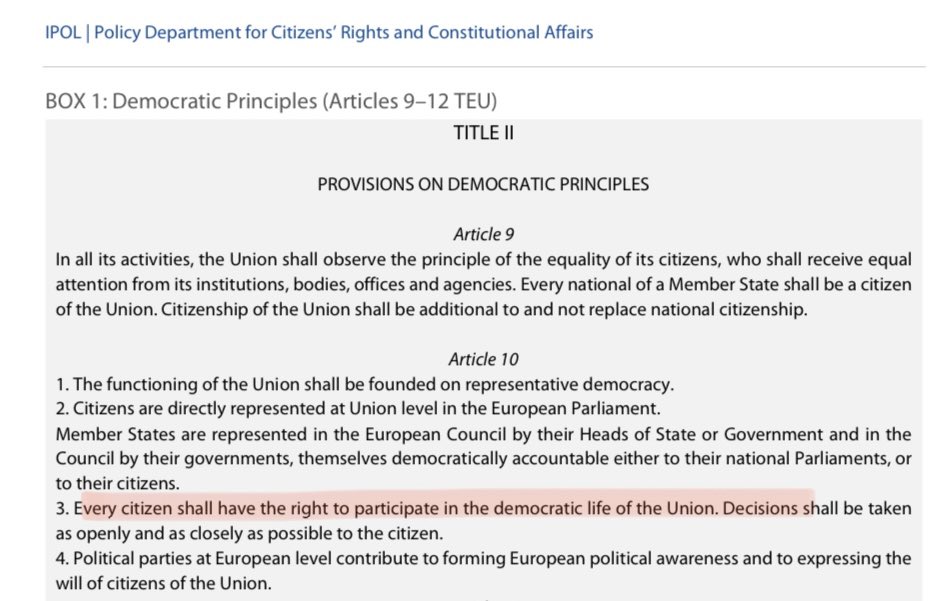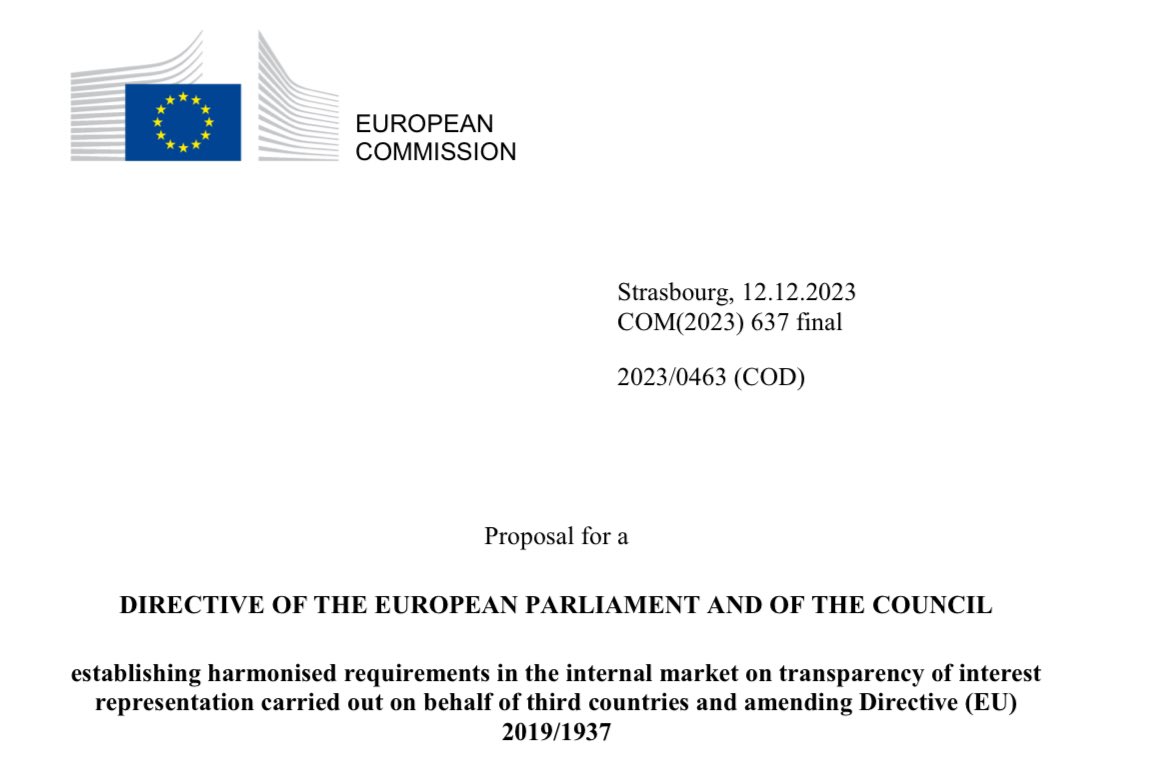🗞 NEW study 🇪🇺
How do citizens engage with the EU?
Here’s the first empirical analysis of the use of existing EU participatory tools, plus a proposal on how to revamp them via randomly selected citizens advising the EU 🧵#cofoe
papers.ssrn.com/sol3/papers.cf…
How do citizens engage with the EU?
Here’s the first empirical analysis of the use of existing EU participatory tools, plus a proposal on how to revamp them via randomly selected citizens advising the EU 🧵#cofoe
papers.ssrn.com/sol3/papers.cf…

1. After 70 years of integration, EU citizens largely marginalized in EU developments.
Yet they’re are entitled to “participate to the democratic life of the Union” since 2009, and to do so beyond elections….
Yet they’re are entitled to “participate to the democratic life of the Union” since 2009, and to do so beyond elections….

2. Contrary to conventional wisdom, the EU today provides a wide array of participatory opportunities to its citizens to engage with – and potentially influence – EU decision-making.
Yet they remain little known and little used.
Yet they remain little known and little used.

3. I’ve examined each EU participatory channel to discuss its rationale (what’s for?), accessibility (who can use it?), responsiveness (what can it be obtained in theory?), effectiveness (what can it be obtained in practice?).
Also gathered data set tracking their use over time
Also gathered data set tracking their use over time
4. Despite being a pre-condition for citizens to participate in EU’s democratic life, the right of access to documents remains underdeveloped #FOIA #AccessToInfoDay 

5. The systematic delays by the EU institutions in providing a response & the administrative complexities of confirmatory process & case law weaken the participatory potential of the right to access to documents in the EU. The reform of Regulation 1049/2001 is long overdue.
6. Public consultations
The Commission, unlike any EU Member State, is mandated to run a consultation for each new initiative.
Yet it remains free to define who, how & when to consult, how to respond. papers.ssrn.com/sol3/papers.cf…
The Commission, unlike any EU Member State, is mandated to run a consultation for each new initiative.
Yet it remains free to define who, how & when to consult, how to respond. papers.ssrn.com/sol3/papers.cf…
7. Consultations typically shows a geographical imbalance, with a gradient of participation between the Member States in the northern and Western Europe and those in the south and east. Remember the #summertime consultation? 

8. Complaints to the @EUombudsman
The accessibility of the EU right of complaint to the European Ombudsman, combined with the high rate of compliance with its decisions, make this participatory mechanism particularly relevant to individuals.
The accessibility of the EU right of complaint to the European Ombudsman, combined with the high rate of compliance with its decisions, make this participatory mechanism particularly relevant to individuals.

9. However, similarly to the PETI Committee, the Office of the European Ombudsman is highly dependent on the relevant institutions’ responsiveness in satisfying the demand of the complainant, as mediated by the @EUombudsman
10. Complaints to the EU Commission offer an accessible avenue for any member of the public, businesses, and civil society, which may significantly contribute to the Commission's monitoring by reporting shortcomings in the application of EU law by the Member States
11. The wide margin of discretion enjoyed by the Commission in determining whether to open an infringement proceeding - following a complaint - combined with its new administrative practice, render this mechanism little appealing to most citizens.
See @rdanielkelemen @Tom_Pavone
See @rdanielkelemen @Tom_Pavone

12. European Citizens Initiative
Despite the initial enthusiasm for this new transnational participatory instrument, the realities of day-to-day operation cast doubts on its ability to deliver on its democratic participatory potential #ECI
Despite the initial enthusiasm for this new transnational participatory instrument, the realities of day-to-day operation cast doubts on its ability to deliver on its democratic participatory potential #ECI

13. European citizens initiative
Limited visibility of the instrument, lack of user-friendliness in the registration & collection of signatures, combined with low effectiveness, have disempowered this instrument, to the point of disincentivising its use among citizens & CSOs
Limited visibility of the instrument, lack of user-friendliness in the registration & collection of signatures, combined with low effectiveness, have disempowered this instrument, to the point of disincentivising its use among citizens & CSOs

14. How do these channels of participation score?
When examined in terms of their accessibility, responsiveness, & effectiveness, these mechanisms’ ability in helping citizens to contribute to the Union’s democratic life appears limited, and democratic potential untapped
When examined in terms of their accessibility, responsiveness, & effectiveness, these mechanisms’ ability in helping citizens to contribute to the Union’s democratic life appears limited, and democratic potential untapped
15. Here’s the major structural obstacles limiting EU citizen participation:
• Low EU (participatory) literacy
• Fragmentation EU participatory system & lack of self-awareness among its users
• Unequal access to EU participation
• Limited integration in EU decision-making
• Low EU (participatory) literacy
• Fragmentation EU participatory system & lack of self-awareness among its users
• Unequal access to EU participation
• Limited integration in EU decision-making
16. Ultimately the EU participatory instruments that have been created are detached from citizens’ political opinion-formation and will-formation – which solely occur at the domestic level –, and ultimately contribute very little to the legitimacy of the EU governance
17 The possibility of embedding randomly selected citizens into EU decision-making could offer - as witnessed in #COFOE - an opportunity to compensate for the current shortcomings of EU participatory democracy, notably its limited accessibility, responsiveness, and effectiveness.
• • •
Missing some Tweet in this thread? You can try to
force a refresh












